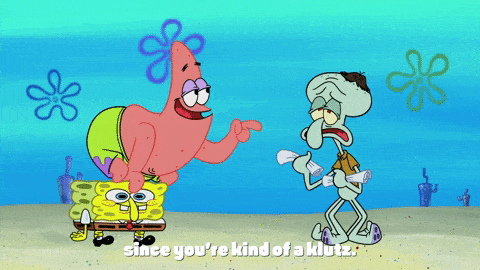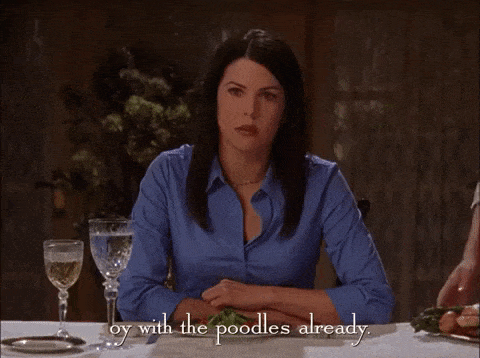
It’s all Kosher. L’Chayim! Let’s go schmooze. Hallelujah!
All words and phrases you’ve probably used once or twice, if not regularly.
These days, Jewish expressions can be heard all over the world and are used by Jews and non-Jews alike, especially on the streets of cities with large Jewish communities like New York City.
Some Americans aren’t even aware of the Jewish origins behind these words, explained Sarah Bunin Benor, a professor of contemporary Jewish studies and linguistics at Hebrew Union College, in her chapter of the 2020 American Jewish Year Book.
“Many Jews cringed when Ted Cruz accused Donald Trump of [having] chutzpah and called it a ‘New York term,’” she wrote.
On the other hand, Obama’s use of the word Chutzpah was well received when he gave his speech awarding the Presidential Medal of Freedom to Barbra Streisand.
“Non-Jews who are ‘Jew-adjacent’ – spouses, co-workers, friends and neighbors of Jews – tend to use Jewish language in respectful ways,” Bunin Benor wrote.
She has found that Jewish words are often ingrained in American culture and reflect different orientations toward Jews. “From respect to romance, from humor to hatred.”
Here’s the meaning behind some of those popular Jewish expressions:
Mazel Tov
In Hebrew, Mazel Tov means “congratulations” or “good luck.”
It’s taken on the same meaning in pop culture. Jay-Z (among other rappers) has included it in his raps multiple times, the phrase is included in movies and musicals.
In the opening song of Legally Blonde: The Musical, lyrics go: “Dear Elle, honey, mazel tov!”
Amen
“Amen!” We all say it all the time when we want to strongly emphasize how much we agree with someone, duh!
But did you know “Amen” is actually a Hebrew word? The Hebrew amen comes from the same Hebrew root as emunah (faith) and is also connected with the word emet meaning “truth.”
It’s found various times in the Torah (Hebrew Bible) and the Old and New Testament.
Louis Ginzberg has translated amen as “So be it” or “So shall it be.”
Hallelujah
Hallelujah is a combination of two Hebrew words.
Hallelu, is a word used to describe a group of people praising something or someone. It’s often been translated as “praise, ye.”
Yah is the shortened form of Gods name “Yahweh.”
Bar Mitzvah
Coming of age for Jews happens automatically at age 13 for boys and 12 for girls. This is what is called a bar or bat mitzvah.
That’s why the word is commonly used in American culture to describe coming of age. For example, “Congratulations, you’re a Bar Mitzvah!” when a person reaches a milestone.
Jay-Z has made reference to “black Bar Mitzvah’s” in his songs. In Roc Boys he raps “black Bar Mitzvahs/ Mazel tov / It’s a celebration [expletive]/ L’Chaim.
Kosher
Have you ever heard someone ask if something is kosher or not? Odds are they’re probably not asking about Jewish dietary restrictions.
The Hebrew word kosher means “clean” or “pure.” It refers to food that has been ritually prepared and blessed so it can be eaten by Orthodox Jews.
When someone asks “Is that kosher?” They’re asking if something is ‘clean’ or acceptable.
Schmooze
To schmooze is a Yiddish word (Yiddish being the language historically spoken by Ashkenazi Jews) which means to chat or make small talk — to shoot the breeze.
Oftentimes it’s used to mean networking. That’s why someone might ask you if you plan on attending the work function to schmooze with the boss.

L’Chayim
L’Chayim is a Hebrew word which directly translates to “To Life!” It’s used as a traditionally Jewish way to raise a toast.
Famously, it’s used in The Black Eyed Peas “I’ve Got A Feeling,” which is why it will forever be a Bar and Bat Mitzvah dance floor classic.
The lyrics go: “Fill up my cup, drink!/ Mazel Tov, L’Chaim!
Shalom
Shalom is the Hebrew word for peace and is used idiomatically to mean both hello and goodbye.
In American popular culture, you’ll hear people using it all three of these ways.

Schtick
Schtick is a Yiddish word referring to an entertainer’s bit, routine, or gimmick.
Generally, it’s a style of performance associated with a specific person, but it can also be a person’s signature behaviour, unique talent or interest.
“I know I talk loud, it’s my schtick.”

BH
“BH” is a shorthand version of “Baruch Hashem” which means Blessed be God or Thank God in Hebrew.
In Jewish culture, BH can also be used as a greeting response.
If someone asks “How are you?” you could respond “BH (Baruch Hashem)” meaning that ‘Thank God you are doing well.’
Klutz
Everyone uses the word Klutz. But not everyone knows it’s Yiddish!
A Klutz is a very clumsy person — someone who is consistently falling or dropping things.

Oy
Oy or Oy Vay is something you hear everywhere now. The Yiddish phrase means “Oh no!” or “Oh gosh!”

Schvitz
Schvitz is a Yiddish word that directly translates to “sweat.” You could say “I’m schvitzing!”
In American culture, it’s often used to describe a sauna or steam bath. You could say “I’m going to the schvitz later, want to join?”
Which of these words do you use? Let us know on Instagram, Twitter, and TikTok!
Originally Published Feb 18, 2022 12:02AM EST
